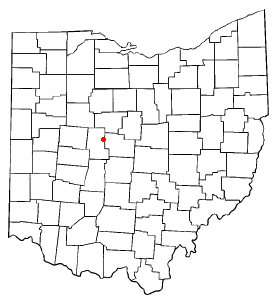I am at my last full camp and I have realized that I haven’t really talked about what it is I’m doing at all these camps. Of course every camp is different in how they choose to utilize me, but I have taught something social justice related at each camp. My largest workshops are about mass incarceration and inherent bias within the media.
Mass incarceration focuses both on how this system of oppression started, with change of sentencing for certain drug crimes and 3 strike policy, but what I mostly focus on is the barriers that we put in front of people once they have left prison, specifically focusing on voting rights, equal employment, housing rights, and access to education. I use Luke 4: 16-21 wherein Jesus decrees to set the prisoners free and bring justice to the oppressed. Many campers have a hard time with this workshop because of the “us versus them” mentality our society puts on prisoners. Many campers have told me that prisoners deserve to be where they are and we shouldn’t let them out. My response is always that people should not be judged based off their worst act and that as long as our justice system is unjust and broken then those in prison should not be treated the way we treat them. I have had some campers have an Aha! moment when we talk about voting rights within prison. One camper in particular realized that her own town was using a prison to have a larger population without giving the prisoners the right to vote. Those are the moments that I love and that keep me going.
The second large workshop I do begins with an activity we learned during our anti-racism training. I ask the campers to consider what our society says makes a good American and how that is the center of dominance versus the borderlands. I then show two images to the group, one of Trayvon Martin and one of Brock Turner. Before we discuss who the people are, we first discuss what the message the image is giving. Both images are the ones that were widely used by the media and we discuss why the media would want to use these images. We then discuss where we would place each person on the previously discussed diagram, either in the Center of Dominance or in the Borderlands. Finally, we talk about who these people are and how their actions contradict the story told by the media. I haven’t had as much push back from this workshop, but campers tend to become quieter while the adults in attendance seem to become more enraged.
For both of the workshops we focus on systems of oppression that we are all actively participating in. We can often feel that because the injustice doesn’t affect us, it shouldn’t concern us. But I believe that as Christians we are called to stand up for the oppressed and to fight against the systems we have put in place to continue the oppression. I try to finish each workshop with talking to the campers about what they are passionate about. I tell them that having passion is one of the most important things in life and that we should all have a cause that we all care deeply about. It doesn’t have to be what I’m passionate about, but everyone should have a cause in which they want their voice to be heard. If I got anything out of this summer, it’s that one is never too young to have passion and to have one’s voice heard. I hope that that message was conveyed at the camps I went to.

























